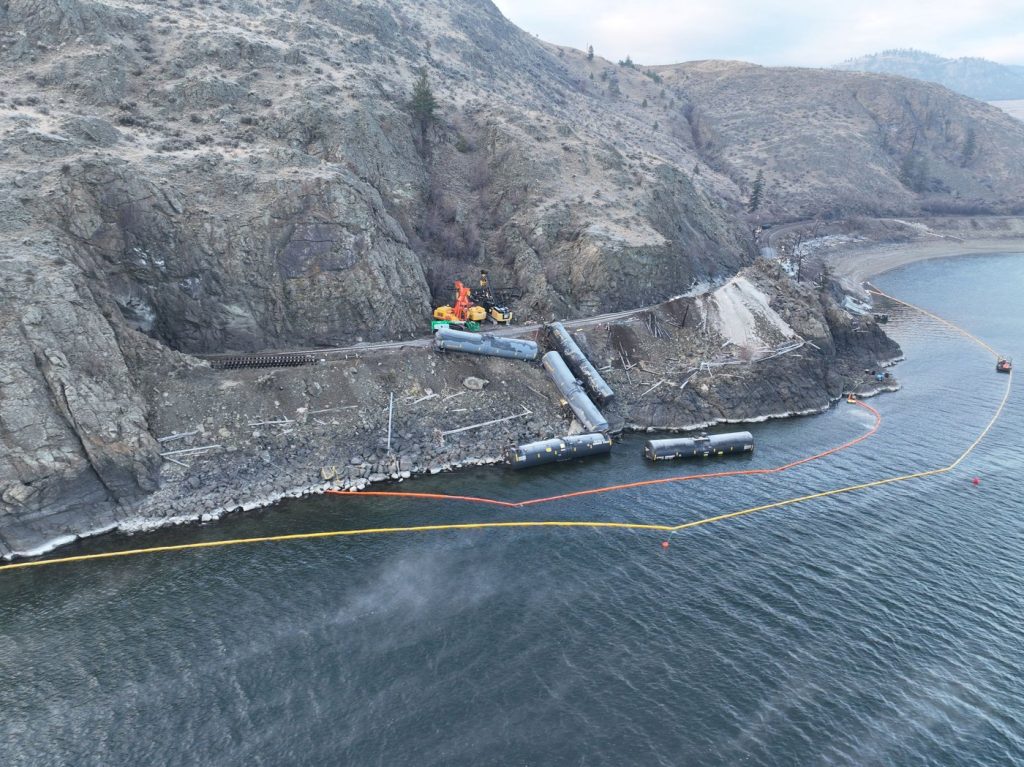KAMLOOPS – The Environment Ministry of British Columbia has reported an estimated spill of nearly 13,000 litres of aviation fuel resulting from a train derailment that occurred on the banks of Kamloops Lake over the weekend. This incident involved a train operated by Canadian Pacific Kansas City (CPKC), which derailed late Saturday, approximately 20 kilometres west of Kamloops.
According to CPKC, around 17 rail cars were involved in the derailment, of which four were loaded with aviation fuel, and five were transporting gypsum, a material commonly used in drywall production. Initial assessments indicate that some product has leaked from two of the affected cars. The Environment Ministry has provided updates noting that preliminary estimates identify about 12,700 litres of aviation fuel as having been released into the environment.
In response to the spill, containment booms have been strategically set up in Kamloops Lake to mitigate environmental damage. The Ministry reported on Tuesday that efforts to transfer aviation fuel from one rail car had been completed, with plans to siphon fuel from another car the following day. However, due to windy conditions, some sheen from the spilled fuel has been observed beyond the designated containment area on the lake.
Water quality sampling has been conducted, although results from these tests have yet to be received, leaving some uncertainty regarding the overall environmental impact of the spill. CPKC officials confirmed that there were no injuries associated with the incident, and the cause of the derailment remains under investigation.
This incident has raised concerns about the environmental implications of rail transport, especially regarding hazardous materials. As cleanup efforts continue, authorities are focused on monitoring the situation closely to prevent further contamination and assess the long-term effects on the local ecosystem.
The train derailment and subsequent fuel spill serve as a stark reminder of the potential hazards involved in railway operations, particularly in environmentally sensitive areas. The recovery and remedial measures implemented by the railway and environmental agencies will be crucial in addressing both immediate and long-term challenges posed by such incidents.











